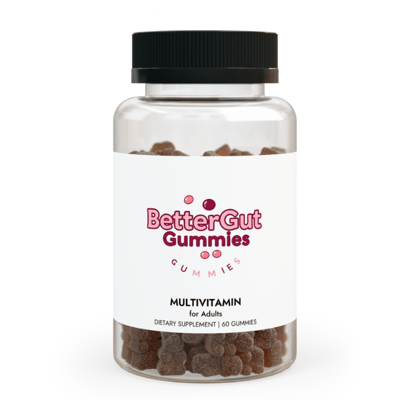

Introduction to Multivitamins
Multivitamins are dietary supplements that contain a combination of essential vitamins and minerals designed to fill nutritional gaps in an individual's diet. They are widely available in various forms, including tablets, capsules, powders, and gummies, catering to a range of preferences and needs. The composition of multivitamins can vary significantly from one product to another, but most formulations include crucial vitamins such as A, C, D, E, and various B-complex vitamins, along with important minerals like calcium, magnesium, zinc, and iron.
In today's fast-paced society, where individuals may struggle to maintain a well-balanced diet due to time constraints and changing eating habits, multivitamins serve as a practical solution to support overall health. Many people find it challenging to consume the recommended daily servings of fruits, vegetables, whole grains, and lean proteins, which are vital for optimal bodily function. Consequently, daily multivitamins can play a significant role in ensuring that individuals receive adequate nourishment to promote good health.
The main nutrients typically found in multivitamins each contribute to various aspects of well-being. For example, Vitamin C is known for its antioxidant properties and support for the immune system, while Vitamin D is essential for calcium absorption and bone health. B vitamins play a crucial role in energy metabolism and the functioning of the nervous system, while minerals like calcium and magnesium are vital for muscle function and maintaining healthy bones. By incorporating these nutrients into a daily regimen, multivitamin consumers can bolster their dietary intake, striving for a more balanced nutritional profile in an increasingly demanding world.
Health Benefits of Daily Multivitamin Intake
Daily multivitamins play a significant role in promoting overall well-being by addressing various nutritional deficiencies that occur due to inadequate dietary habits. One of the most notable benefits is the enhancement of energy levels. Multivitamins often contain B vitamins, which are essential for converting food into energy. Regular intake can help mitigate feelings of fatigue, thus supporting a more active lifestyle.
Moreover, the immune system receives substantial support from daily multivitamin consumption. Vitamins such as C and D, along with minerals like zinc, are vital for maintaining robust immune function. These nutrients work collectively to defend the body against pathogens, thus reducing the likelihood of infections and illnesses. Particularly during seasonal changes, when immune systems can be more vulnerable, multivitamins can be a useful addition to one’s daily routine.
In terms of cardiovascular health, multivitamins contribute to heart function by supplying necessary nutrients, such as omega-3 fatty acids, folic acid, and magnesium. These components can assist in regulating blood pressure, lowering cholesterol levels, and promoting overall cardiovascular wellness. Similarly, multivitamins can bolster bone health. Key nutrients such as calcium and vitamin D are essential for maintaining bone density, helping to prevent conditions like osteoporosis, especially in older adults.
Furthermore, multivitamins may positively influence mental well-being by aiding in stress management and cognitive function. Nutrients such as vitamin B6, B12, and folic acid are associated with the production of neurotransmitters, which are crucial for mood regulation and mental clarity. By integrating these essential vitamins and minerals into one’s diet, daily multivitamins can contribute beneficially to overall health.
Who Should Consider Taking Multivitamins?
In today's fast-paced world, daily multivitamins can play a crucial role in ensuring adequate nutrient intake for various demographics. Individuals from distinct age groups, varying lifestyles, and specific health conditions may all find multivitamin supplementation particularly beneficial in enhancing their overall well-being.
For instance, older adults often require additional support to meet their changing nutritional needs. As the body ages, nutrient absorption tends to decrease, and conditions such as osteoarthritis or osteoporosis may necessitate higher intakes of calcium and vitamin D. Daily multivitamins can help bridge these nutritional gaps, promoting better health and vitality among seniors.
Pregnant and lactating women also have unique nutritional requirements. The physiological changes during pregnancy place increased demand on essential vitamins and minerals, such as folic acid, iron, and calcium, to support fetal development and maternal health. A daily multivitamin can serve as a vital supplement to ensure that both mother and child receive the necessary nutrients during this critical period.
Moreover, individuals following restrictive diets, including vegetarians and vegans, may lack certain nutrients typically found in animal products, such as vitamin B12, iron, and omega-3 fatty acids. A well-formulated multivitamin can help compensate for these deficiencies, promoting better health outcomes and reducing the risk of associated health problems.
Athletes, whether amateurs or professionals, may also benefit from daily multivitamin intake. Increased physical activity often leads to heightened nutrient demands due to the body's need for energy, recovery, and overall performance. Tailored multivitamins can support athletes by ensuring they receive sufficient levels of essential nutrients to maintain optimal health and enhance performance.
In conclusion, individuals across various demographics, including older adults, pregnant women, those with dietary restrictions, and athletes, can find significant benefits from daily multivitamin supplementation. By addressing specific nutritional needs, multivitamins can enhance health and well-being throughout different stages and lifestyles.
How to Choose the Right Multivitamin
Choosing the right multivitamin is a vital step toward enhancing overall health and wellness. Given the plethora of options available on the market, it can be challenging to make an informed decision. To begin, examining the ingredients on the label is crucial. Opt for a multivitamin that contains essential vitamins and minerals tailored to your specific health needs. Key nutrients to look for may include vitamins A, C, D, E, and K, as well as B-complex vitamins, and minerals such as magnesium, calcium, and iron. It is advisable to verify that these components are present in appropriate amounts; excessive dosages can lead to toxicity.
When evaluating a multivitamin, understanding the dosage is equally important. Each nutrient is accompanied by a recommended dietary allowance (RDA) or adequate intake (AI) level. Ensure that the multivitamin you select aligns with these guidelines, as this can help you avoid deficiencies while preventing the potential risks associated with excessive intake of certain vitamins and minerals. Additionally, consider any specific health conditions or dietary restrictions you may have that could affect your nutritional needs.
Quality markers are also critical in the selection process. Look for third-party testing certifications that indicate the product has undergone rigorous testing for quality and potency. This contributes to ensuring that the multivitamin you choose is both safe and effective. Furthermore, consulting with a healthcare professional can provide tailored recommendations based on your individual health status and lifestyle factors. A doctor or nutritionist can guide you toward the most suitable multivitamin to meet your specific requirements. By taking these steps, individuals can make an informed choice that supports their long-term health and well-being.
The Essential Role of Daily Multivitamins in Maintaining Good Health
Importance of taking a multivitamin each day for your overall health
BetterGut Gummies
4/15/20254 min read
